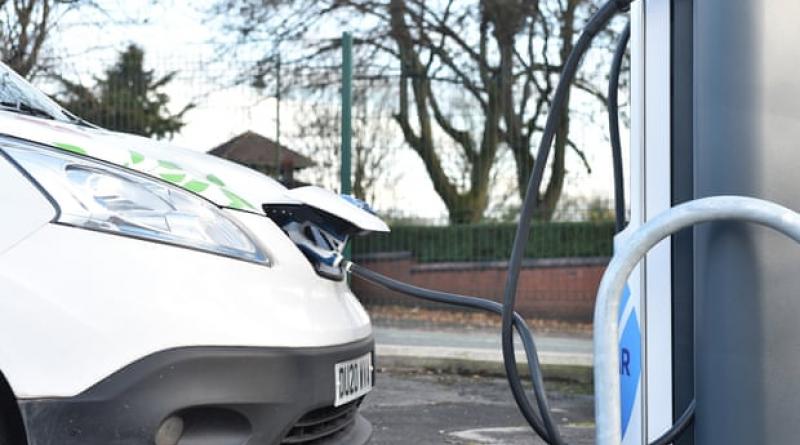UK ban on new fossil fuel vehicles by 2030 'not enough' to hit climate targets.

Thinktank says deadline of 2026 is needed for government to meet its own carbon budget.
The prime minister’s plan to bring forward a ban on the sale of new fossil fuel vehicles by 10 years to 2030 will still not go far enough to meet the government’s own legally binding climate targets, according to new research.
Boris Johnson is expected to accelerate the shift to electric vehicles by setting out a new deadline for the sales of polluting passenger cars as part of a 10-point plan to tackle the climate crisis due to be revealed this week.
But a report from New Automotive, a transport thinktank backed by Quadrature Climate Foundation, has warned that the number of fossil fuel cars likely to roll onto British roads before the ban will be enough to blow the UK’s carbon budgets.
The widely anticipated decision to set a 2030 ban on new fossil fuel vehicles would help cut car emissions to the equivalent of 46m tonnes of carbon dioxide by 2030, according to the report, from an equivalent of 68 MtCO2e (metric tons of carbon dioxide equivalent) today.
But this forecast is still almost 40% higher than the interim target set by the government’s official climate advisers, the Committee on Climate Change, to cut car emissions to 32.8MtCO2e by 2030.
The thinktank estimates that the government would need to set a sales ban of 2026 for internal combustion engine vehicles or introduce extra measures to reduce car use if it hopes to meet its own 2030 carbon budget.
“A ban in the 2030s will do nothing to tackle the long tail of polluting cars that will be left on our roads for many years to come,” the report said.
Ben Nelmes, the head of policy at New Automotive, said that banning the sale of new fossil fuel cars by 2030 would still leave 21m polluting passenger vehicles on the road by the end of the decade, compared with 31m today.
This would mean that almost two-thirds of the miles travelled by car in the UK would be in polluting passenger vehicles, rather than the even split between electric and fossil fuel “car miles” needed to meet the government’s interim climate targets.
The interim emissions goal is considered a key milestone on the UK’s path to ending its contribution to the climate crisis by cutting its carbon emissions to virtually zero by 2050.
Road transport is the single largest contributor to the UK’s carbon emissions, yet little to no progress has been made reducing transport emissions since 1990, according to the thinktank. It has called on the government to help reduce traffic by encouraging cycling, walking and more flexible home working.
“Reducing car emissions means reducing petrol and diesel car miles travelled,” said the report. “These miles will mostly be replaced by electric car miles, but they could also be reduced by modal shift including public transport as well as cycling and walking. The Department for Transport must work with departments across government to ensure that policy supports a reduction in petrol and diesel car miles.”
18 November 2020
The Guardian




